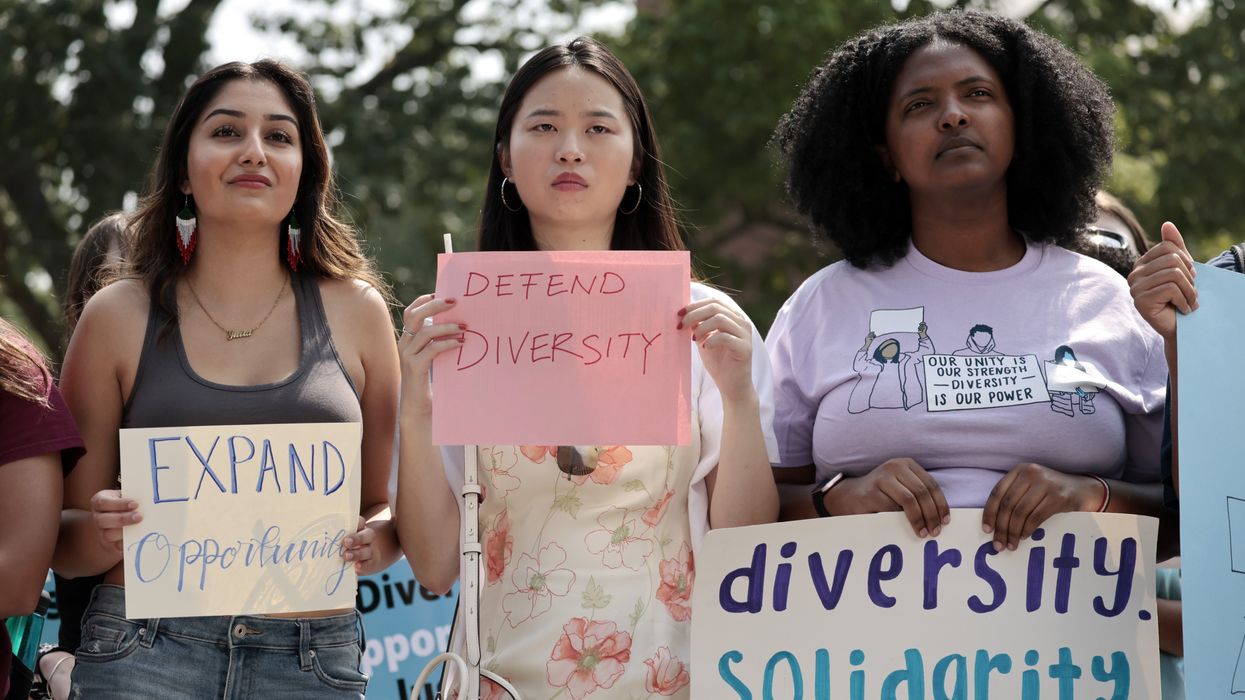Shapiro, a freelance journalist, was a newspaper editor for 30 years in California, Illinois and Iowa, including 21 years as executive editor of the Waterloo-Cedar Falls Courier.
This is part of a series offering a nonpartisan counter to Project 2025, a conservative guideline to reforming government and policymaking during the first 180 days of a second Trump administration. The Fulcrum's cross partisan analysis of Project 2025 relies on unbiased critical thinking, reexamines outdated assumptions, and uses reason, scientific evidence, and data in analyzing and critiquing Project 2025.
The most celebrated passage in American history is honored in textbooks as a “self-evident” truth about equality.
We are schooled “that all men are created equal, that they are endowed by their Creator with certain inalienable Rights, that among these are Life, Liberty and the pursuit of Happiness.”
It is a lofty proposition, but as the brainchild of two slaveowners — written by Thomas Jefferson at the behest of Benjamin Franklin — inherent contradictions exist.
The inspiration was English philosopher John Locke, who wrote more hypothetically, “Being all equal and independent, no one ought to harm another in his life, health, liberty, or possessions.” Genesis 1:27 simply stated: “Men and women are created in God’s image; therefore they are equal in worth.”
But a quote attributed to former University of Oklahoma and Dallas Cowboy football coach Barry Switzer is perhaps more on point: “Some people are born on third base and go through life thinking they hit a triple.”
To mix sports metaphors, the supporters of Project 2025 — a blueprint developed by the Charles Koch-funded Heritage Foundation for a second Donald Trump presidency — were born on the 1 yard line, first and goal.
The manifesto harkens back to the good old days of the Founding Fathers, when some humans were property and many — notably women — weren’t allowed to own property or have basic rights.
The U.S. Constitution left voting to the discretion of the states, which bestowed it primarily on property-owning white males. New Jersey was an exception, allowing women and free Blacks to vote, if their worth was “50 pounds of clear estate.” That lasted until an 1807 “reform” gave all white men the vote, but rescinded it for women and Blacks.
Course corrections — a Civil War, women’s suffrage and the civil rights movement among them — have attempted to level the playing field.
Alas, according to Project 2025, these changes begat modern day “woke diversificrats” who believe the federal government can produce a greater semblance of equality. Instead, it invokes “states’ rights” — the path initiated by Southerners who championed slavery and segregation. Project 2025 wants to ”dismantle the administrative state and return self-governance to the American people” and “secure our God-given individual rights to live freely — what our Constitution calls ‘the Blessings of Liberty.’”
Affirmative action, Project 2025 concludes, is “affirmative discrimination.” As Trump told Time in April, “There’s absolutely a bias against white [people], and that’s a problem.” (Fifty-eight percent of his supporters agree, according to a November 2023 CBS News poll, but only 9 percetnt of Biden backers do).
More articles about Project 2025
- A cross-partisan approach
- An Introduction
- Rumors of Project 2025’s Demise are Greatly Exaggerated
- Department of Education
- Managing the bureaucracy
- Department of Defense
- Department of Energy
- The Environmental Protection Agency
- Education Savings Accounts
- Department of Veterans Affairs
- The Department of Homeland Security
- U.S. Agency for International Development
- Affirmative action
- A federal Parents' Bill of Rights
- Department of Labor
- Intelligence community
- Department of State
- Department of the Interior
- Federal Communications Commission
- A perspective from Europe
- Department of Health and Human Services
- Voting Rights Act
- Another look at the Federal Communications Commission




















Trump & Hegseth gave Mark Kelly a huge 2028 gift